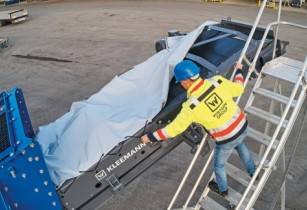The World Bank will loan US$500mn to Egypt to help it improve its infrastructure and the delivery of services
The Upper Egypt Local Development Program, approved by the World Bank Group?s board of directors, will focus on two regions ? Qena and Sohag ? which are amongst the poorest in the country but have a large unrealised growth potential.
This programme is part of the World Bank Group?s Country Partnership Framework (CPF) for 2015?19. The CPF provides total bank group support of about US$8bn during this period for supporting vital sectors of the economy in order to reduce poverty and boost shared prosperity.
According to the bank, sub-national governments in Qena and Sohag will be empowered to deliver better infrastructure and services for economic development, job creation, and social wellbeing. Private sector coordination and investment, as well as local governance, will be improved, and a participatory approach that engages citizens at all levels will be followed.
?We are pleased to support the government?s broader efforts in developing the lagging regions of Egypt. This operation is a key part of the World Bank?s strategic focus in Egypt to promote jobs, address spatial inequality, and improve governance in service delivery.? said Asad Alam, World Bank country director for Egypt, Yemen and Djibouti.
Upper Egypt, which is composed of ten governorates, is home to about 38 per cent of Egypt?s population and 67 per cent of its poor. The landlocked governorates are relatively distant from the country?s primary ports and markets, which has led the Government to seek Bank global expertise and financing to support Egypt?s vision for developing the lagging regions and spurring growth.
The first part of the programme will improve government to business services; competitiveness of economic sectors with unrealised potential; and industrial zone management and services for the existing six industrial zones. ?The programme will focus on facilitating and promoting private sector development in agribusiness, service, and industrial sectors with growth potential. The emphasis will be on private sector dialogue, participation, and investment to create sustainable jobs and growth,? said Najy Benhassine, World Bank Group manager for trade and competitiveness in MENA.
The second part of the programme will support the introduction of a performance-based grant system and increase the governorates? budget and decision making authority.




























